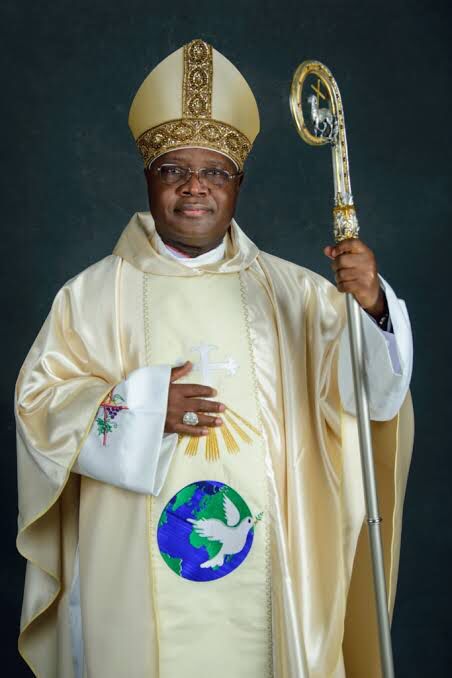Sigmund Freud, revered as the father of psychoanalysis and recognized as one of the most brilliant minds of the 20th century, left a memorable statement: “CIVILIZATION WAS BORN WHEN THE FIRST HUMAN INSULTED THE ENEMY, INSTEAD OF THROWING A STONE AT HIM.” This quote resonates particularly in the current context, marked by the escalation of tensions between various political leaders, both inside and outside of Latin America.
The recent disagreements between presidents in the region raise the worrying question of whether we are returning to primitive forms of conflict resolution, where dialogue and reason seem to be sacrificed for the sake of confrontation and discord. That is, returning to throwing stones, as if there were no ideas to discuss.
It is evident that discussions between heads of state can no longer be reduced solely to the dichotomy between left and right. Therefore, it is imperative to address crucial issues related to socioeconomic development, the eradication of poverty and marginality, migration, insertion into global trade flows, as well as the fight against the growing influence of criminal groups in society. .
The intensification of conflicts and accusations between Latin American presidents manifests itself without restrictions, evidencing a worrying lack of capacity to address the complex demands of contemporary societies. Political leaders do not hesitate to resort to diplomatic confrontation and the exchange of insults through social networks, which reflects an alarming lack of common sense and pragmatism in the regional boxing sphere.
These disputes ultimately reflect the deep ideological divisions and growing polarization affecting Latin America, not only at the national level, but also at the regional level. The lack of experience of some leaders, combined with anti-political and confrontational speeches, has contributed to the increase in diplomatic tension in the region, as evidenced by the confrontations between the presidents of Argentina and Colombia, as well as between Ecuador and Mexico.
This escalation of accusations, among the majority of Latin American presidents, is intensifying without restrictions. It is a phenomenon that is no longer limited simply to ideological differences between left and right; Now it involves direct confrontations between all political actors, while citizens are trapped in the middle of the confrontation.
According to some political analysts, the constant clashes between leaders in the region have their origin in the inexperience of some of them, which is the current panorama of Latin America, a neighborhood that simulates a battlefield where the constant loss of ideological sympathies, The triumphs of new authoritarianisms on both sides keep diplomatic relations tense.
In my view, the Latin American political quadrilateral is formed in this way: Ecuador vs. Mexico, Argentina vs. Colombia, Venezuela, Spain and Nicaragua vs. Chile, Brazil vs. Argentina, El Salvador vs. Colombia, Mexico vs. Argentina, Argentina vs. Pope Francis, Venezuela vs. Guyana, Guyana vs. Colombia, Colombia vs. Israel and everyone vs. Venezuela, Nicaragua and Cuba.
The historical polarization in Latin America, added to the arrival of political leaders considered “outsiders”, has weakened the negotiation capacity of the foreign ministries, generating a climate of permanent confrontation. Although oscillations between right-wing and left-wing governments have been observed in the past, leaderships with diverse positions are currently being experienced, which further contributes to political tension in the region.
In this context, the confrontation between political personalities is seriously affecting the entire Latin American region, hindering the search for political and economic consensus that is essential for the progress of the region. A return to constructive dialogue and international cooperation is necessary to overcome common challenges and build a more prosperous and peaceful future for Latin America.
Three elements have contributed to the growing tension between the region’s leaders: polarization, outsider presidents with opposing positions, and radicalization.
Several presidents who have assumed the first office of their country, without sufficient experience, and also with an anti-politics speech, as in the case of Javier Milei (Argentina), led him, for example, to insult Gustavo Petro (Colombia), calling him a “terrorist murderer” and it had to be the foreign ministers of both nations who called for calm. Despite the fact that the offended party recalled his ambassador in Buenos Aires and expelled diplomats from that country from Bogotá. As well as the case of Daniel Noboa (Ecuador) and López Obrador (Mexico), where the two violated both the Vienna Convention on diplomatic relations and the Caracas convention on the Right of Asylum.
This friction between both presidents began with a comment by the Mexican president, Andrés Manuel López Obrador, on X (Twitter), at the beginning of March, about the political violence in Ecuador and the alleged manipulation of the media. in the last presidential elections that gave Mr. Noboa the winner.
The government of Ecuador responded by expelling the Mexican ambassador, Raquel Serur, and tension increased when Mexico granted asylum to former vice president Jorge Glas, who had an arrest warrant for embezzlement, leading Noboa to storm the diplomatic headquarters. of Mexico in Ecuador to arrest Mr. Glas.
Both presidents ended up going to the International Court of Justice to sue each other for the same cause: violation of International Law.
The above, added to the polarization and the arrival of political outsiders, has Latin American diplomacy torn, so to speak.
It cannot be forgotten that the regional political pendulum is in continuous movement. In Latin America, a wave of presidents emerged from the neoliberal right, which then turned to the left with governments such as that of Hugo Chávez, Rafael Correa, Evo Morales and Luiz Inácio Lula da Silva. In the current period, that pendulum did not swing from one side to the other, but Latin America is experiencing leadership from leaders from different sides. That’s why we see presidents like Milei, a capitalist, as he defines himself, who are located on the right-wing spectrum, but we also have progressive governments, like in Brazil, Colombia and Chile.”
All of this is dangerous because, at a time when the world economy needs, among other things, countries to be able to generate better conditions for the growth and development of their societies, we have rulers generating conflicts, not of the State, but of ideological ones.
One of the most folkloric political events in the week that has just ended has been the scandal unleashed by the Minister of Transport of Spain, Mr. Oscar Puente, following the statements he gave in a round table on social networks and the public image of politicians. , in which he recommended that young people be themselves and pointed out that “there are very bad people who, by being themselves, have reached the top.”
In that sense, Óscar Puente gave as examples the cases of the Argentine president and the former North American president Donald Trump. “I don’t know if they will have advisors. I to Milei, of course, if she has advisors, I think she doesn’t listen much” and then the official went further and slipped that Milei consumes substances.
The official response from the Casa Rosada was forceful and after repudiating the official’s slander, it pointed directly against the President of the Government of Spain, Pedro Sánchez: “Pedro Sánchez’s government has more important problems to deal with, such as accusations of corruption that fall on his wife, an issue that even led him to evaluate his resignation. For the good of the Kingdom of Spain, we hope that justice acts quickly to clarify such a corruption scandal that directly affects the stability of your Nation and, consequently, relations with our country.”
The outsiders of politics in the region have tested coexistence in the Latin American space with behavior that oscillates between erratic and planned provocation, by fomenting conflicts and divisions that make it difficult to find consensus on political, economic and social issues, central to the region. There will always be agreements of convenience, but the spaces for convergence between their presidents are closed.
In this way, the confrontation of these personalities is about to become a political problem between presidents that is affecting the entire Latin American region where future political consensus may not only fail due to ideological divergences but also due to personal animosities.


Your article helped me a lot, is there any more related content? Thanks!